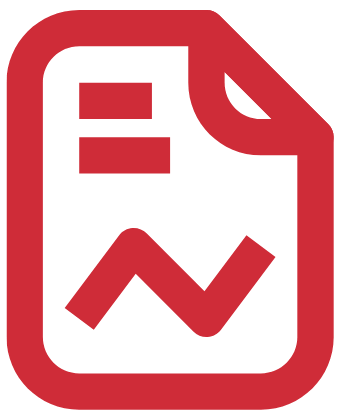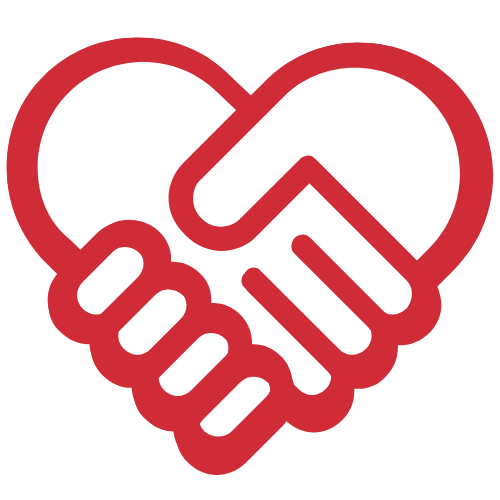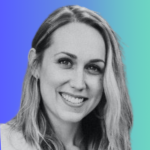Espresa + Betterworks Present a Joint Webinar of Female Thought Leaders: Inclusivity for All, Delivering Values in the Heart of Your Workplace
Your company’s mission, vision, and values are the core drivers of business success. These foundational documents articulate what your company is trying to do and what it stands for. But to make the most of these integral elements, companies must learn how to align employees with company values through overarching goals as dictated by your mission, vision, and values. Watch the webinar and/or read the transcript below.
Featured speakers:
- Sylvia Flores, Chief Brand Officer, Espresa
- Rocki Howard, Chief People and Equity Officer, The Mom Project
- Alex Larralde, Senior Director, Customer & Content Marketing
- Stacey Turnbull, Head of Global Events, Betterworks
- Talya Williams, Manager of Global Wellbeing, Proofpoint
Stacey Turnbull, Betterworks // Everyone, and welcome to today’s session, “Inclusivity for All: Delivering Values in the Heart of Your Workplace.” Just a little housekeeping before we get started, we will be running a live Q+A at the end of the webinar. So if you have any comments or questions during the discussion, please type them into the chat and Q+A box from the control panel to your right. And if you miss anything, don’t worry, we’ll be sending the on-demand recording when everything is available. Our speakers today on our panel include Alex Larralde, Betterworks Senior Director, Customer + Content Marketing Larralde, and Talya Williams, Manager of Global Wellbeing Williams for a cybersecurity company. Rocki Howard, The Mom Project, Chief People + Equity Officer Howard, And to jumpstart the conversation, we have Sylvia Flores, Espresa’s Chief Brand Officer. All right, Sylvia, take it away.
Sylvia Flores, Espresa // Thank you so much, everyone. I’m very excited to see all of you today. I’m excited to be with these women, even the off-camera ones, I want them on camera as well. We’re excited to be together today. We’re talking about a SHRM credit, but really this is very different because it’s a very honest conversation about the workplace and what we’re dealing with right now, the state of the union, and what’s coming next. So this is going to be very unscripted, very conversational. And we’re going to start with this initial question of building an intentional and inclusive culture in your organization. So that’s where we’re going to start kicking this off, and we’ll see where this goes from there. So, Alex, would you like to lead us with that question?
Alex Larralde, Betterworks // Sure, absolutely. Well first, thanks for having me here. I’m in a little bit of a different role, I think, than everybody else on the panels. So I’m bringing a slightly different perspective as an employee, and a working mother, and someone who has been a part of many cultures, some good, some not so great. And so as a manager and somebody who’s been leading teams within organizations, my point of view is a little bit just a little bit different. I feel like the first step personally, in building a team or building any organization where you’re bringing people together from diverse backgrounds and different lived experiences, is to really get to know who your people are and what they value. I think that leadership oftentimes has a different set of lived experiences, especially traditionally and who has had access to leadership roles and who has typically held leadership roles at organizations. And I think when you’re surrounded by people who have very similar backgrounds, educational levels, beliefs, people of a similar ethnicity, that you can have blinders on. And so it can be really easy to make assumptions and act based on instinct. And so I think the first step needs to be who really works for your organization, who is actually a part of the team and getting to know them on a different level, on a deeper level, to make sure that the culture and the values that you’re creating align to what they also believe in. And that there’s this sense of shared values.
Understanding who really works for your organization … and make sure that the culture and the values that you’re creating align to what they also believe in – there’s this sense of shared values.
Talya Williams, Global Wellbeing // I’m going to come up to the shallow end a little bit. From a wellbeing perspective, definitely aligned with you Alex, on that. I think when it comes to wellbeing, we talk about what are the needs? What do employees truly need to be successful in their roles from that perspective? How are they able to bring their whole self to work? How are they able to feel empowered, feel well and be able to thrive? And it’s really listening. It’s having those conversations, welcoming those conversations, and not necessarily promising anything, but it’s just starting off by listening and talking about things. And you find out so much information, just asking a question and opening up the floor for that feedback to receive it. And I think in that, being intentional, is being intentional about your response too. So taking that information in, but being intentional about your response. So not necessarily any empty promises, not doing any surveys without any sort of tangible action afterwards. But it’s taking that information, discussing it, having those conversations, and then bringing in those people that provided that feedback and worked together on a solution. That to me, is bringing true intent there because you’re doing it together. And it’s not you making an assumption. It’s not you necessarily bringing any by biases in. You’re able to actually work as a team and collaboratively to bring, about solutions and to really address any sort of needs that arise. So that’s where I would go with that from a wellbeing perspective.
Sylvia Flores, Espresa // And it’s fair to state that, that is an unscripted look at what your employees are looking for and what it is that you can continue to propagate positively in your culture, and what they’re actually feeling at the moment. And that’s awesome. So what are the common markers that we’re looking for with employees who are dealing with some of those biggest constraints at the moment?
Take an unscripted look at what your employees are looking for and what it is that you can continue to propagate positively in your culture.
Alex Larralde, Betterworks // Yeah, talk about how you define culture at an organization. Because this is something that we’re thinking a lot about at Betterworks right now, that culture can include the way that you work as well, and the work habits and work patterns and the ways that you collaborate, and the types of communication channels that you use, that it can be more encompassing than maybe what we think about as culture. So I’d love to hear thoughts on what culture is or how we should be defining it.
Rocki Howard, The Mom Project // I think that’s such an important question and I want to lean into a couple of the things that both Alex and Talya have said. One, I think representation matters. So I identify as Black… She/her, Black, Christian, Gen X, wife, mom. And it is the intersection of all of those dimensions of my diversity that brings perspective and brings that level of representation to the table as we are looking at how we change what this looks like. And so when you’re building out, representation matters. And if everybody who is building looks the same, you’re not going to get to a great place.
So I think it was a great shout, Alex, and I love Talya, the whole concept of listening. Here’s what I think for those people who may be listening that go, “okay, that’s really great, but tell me how I build it. How do I get there? What do I actually do?” I have a bit of a theory that lots of us get a little bit overwhelmed by understanding how to build. And we engage consultants and we do all of this work, and I think that is important. But I think there’s a couple of things that you need to do to be able to start the work that are really simple, no matter what size you are, and that are applicable. One, it goes back to some of the things the ladies were saying. Let’s take a minute to reflect. What does diversity equity, inclusion, and belonging mean in our organization? And I don’t really care what it means at Coca-Cola. I don’t really care what it means at Maine. That’s great for them. What does it mean to my organization? Because that’s how we identify what success looks like.
I have this theory that you can’t build a successful culture and program, unless you’ve already identified what success looks like and what is authentic and genuine in your environment. Which is why Talya said this concept of listening to people is so important. Two. I think then you have to take a step back and go, “okay, well, this is what success looks like. Where are we today? Where’s the gap assessment?” So if this is what success looks like, let’s be really honest about where we are today. Let’s strip away what we want to say externally, let’s strip away all the marketing messaging. Let’s strip away this need to, how do we position where we are, but let’s get really honest. And this is when it gets uncomfortable, but let’s really honest that if you are uncomfortable, that’s when you know you’re doing the right work. If you are all feeling really good, you’re probably not digging deep enough. Right? So let’s get uncomfortable. Let’s have some honest open conversations. The truth is racism and bias exist in our communities, in our companies, and until we are honest about that, and we’ve determined what success looks like, and where the gaps are, only then can we start to put together a plan of action. With that plan of action, let’s make sure we know who’s going to be accountable for it.
Another key point I’m going to drop is that your Chief Diversity Officer, your CDO does not own diversity by themselves. Everyone in your organization owns diversity, equity, inclusion, and belonging. And it’s our responsibility to pass that messaging along to people, and tell them and help them understand what their role is. And then finally, what I’d like to make sure of is that we hold people accountable. How is this part of our performance management process? How is this part of our bonus process? How is it that when people aren’t aligned, we are having those conversations. And so for me, when I think about how we build a program, that’s what we do. Like those are the places where we need to go and then let’s measure our progress.
The truth is racism and bias exist in our communities, in our companies, and until we are honest about that, and we’ve determined what success looks like, and where the gaps are, only then can we start to put together a plan of action. With that plan of action, let’s make sure we know who’s going to be accountable for it.
Talya Williams, Global Wellbeing // I love that. And that literally takes… Rocki Howard, you took what Alex and I said, and put it in such a nice, pretty, holistic, simple picture. And I think that drives Alex’s point again, that’s culture. It’s really taking all of those pieces together and intertwining them, making sure they are authentic to the organization. And at the same time they’re measurable, and we have a direction where we want to go. And it’s very honest.
And I think sometimes honesty is a little hard, to your point Rocki, it’s uncomfortable. But I think the same thing from a wellbeing perspective, we really focus on diversity. We definitely focus on equity from a health perspective and of course inclusion. And so to me, all of these things that we’re talking about are interwoven and following that same thing like you said, Rocki, doesn’t matter the size of the company. It actually doesn’t matter I don’t think it’s a discipline either. Because when it comes to wellbeing, everything you said applies. And so we are looking to make sure we are diverse in our offerings. We’re diverse in how we deliver our offerings. We are equitable in making sure everyone has access to the offerings and we include everybody. So no one is left out.
And our goal is to make sure we are bringing an opportunity for employees to bring their whole self to work. So whether they’re having financial stress or they’re having some mental health challenges, or even some physical limitations, we’re providing an opportunity for access and making sure that they have the tools and resources that they need. Not only to access that support, but also to talk about it. Can they talk about what’s going on? Can they share with us, honestly, what they need to do to perform at their best? And so I think all of this really does tie in together.
And so I appreciate the comments that have been said so far. And this is a very exhilarating conversation. I think Rocki, you gave us a great start in really what someone could do to get started. That nice framework. You can fit anything in there from an organizational standpoint so that was perfect. Love that.
Our goal is to make sure we are bringing an opportunity for employees to bring their whole self to work.
Sylvia Flores, Espresa // I can’t wait to see that. I cannot wait to see that. I’m excited about some of the things you said before I got dropped off. That the common markers and representation and defining not only culture, but also access to leadership roles. Those things all come together in a way that I believe are very meaningful. We’re trying to do a lot right now as culture leaders, because there’s a lot going on in the world that we, as organizations can’t come and actually really identify ourself on one side or another. Or we can. I mean, that’s an interesting thing.
We’ve got civil unrest, we’ve got a global pandemic, we’ve got a European and actually Global war as well. There’s a lot of things that are happening here. So all of the companies that we represent are basically small nations of governance, where we have to come in and help on the side of being the care providers for the individuals who need help. And mental health is a huge thing. I’m trying not to go off the stuff, but I feel like it just immediately hinges in.
We’re defining not only culture, but also access to leadership roles.
Talya Williams, Global Wellbeing // I can add in another thing too, Sylvia, I think the other piece to add to this that we can’t control is natural disasters.
We’ve had everything from floods, to earthquakes, to fires. I mean, I think this is a time in the world where it’s just really piled on. We started off with a pandemic, and things piled on after that. It’s a lot.
Sylvia Flores, Espresa // It is a lot. So how does the organization, which again, is like these small nations, these companies, who are now needing to deal with the mental health of individuals, they’re trying to bring in talent that will feel comfortable where we’re at, and we’re looking at the socio-economic and the political environment that we’re working within? How do we support the employees, and all of them, exactly where they are on either side of every aisle? That’s a huge thing.
So HR has gotten burdened. They’ve always been burdened, but now we’re not even talking about HR any longer because that sounds very clinical. Now we’re talking about the human experience and talking with humans and figuring out how to, within the companies that we are working within, how is it that we can really transform these employees’ lives?
HR has gotten burdened. They’ve always been burdened, but now we’re not even talking about HR any longer, because that sounds very clinical. Now we’re talking about the human experience and talking with humans and figuring out how to within the companies that we are working within, how is it that we can really transform these employees’ lives?
Talya Williams, Global Wellbeing // That’s a great point. I’d like to just bring up Rocki’s point again about, everybody has a role. So this isn’t HR taking care of everybody. It’s really providing, again, the tools, the resources, the accountability, and really in some ways, guidance on how we can help everybody within their own scope within their own roles and individuality, how do we help them do that? So it’s really helping everybody move together in their own way where they are.
So I think it sounds very large in scale, but you can break it down. I think Rocki broke it down for us. And it’s one of those things where, when people understand what their role is, then they know how to move. And so we may not be in a place where we’ve told everyone here’s how you can do it, here’s what your role is. That might not be very obvious. But I think if we provide that information and bring that understanding, that can help people move and move together as a unit to really bring some sort of unity. Rocki, jump in. I see you. Go ahead.
Rocki Howard, The Mom Project // For sure. Hi. Oh Talya, I know you see me. I see you too. I picked up on that because it’s so much at the essence of what we are here to do. It’s to make sure that we see everybody. Not the people we like, not the people that we agree with, but that we see and make psychologically safe places for everyone. And that is not easy to do. We can banter that all around.
I know someone in the chat I saw went, “that’s very general, can you get specific?” We will not be able to get that specific, because we’ve got like 22 minutes with you all today. And this is hours and years worth of work. But what I would like to say that I think we all need to be very conscious of, is we’ve all probably heard the phrase this year, “the great resignation”. And everyone’s talking about “the great resignation”. I have another theory that this isn’t “the great resignation”, this is “the great recalibration”. And the relationship with the employer and employee is changing and evolving. The relationship is changing and evolving.
Alex Larralde, Betterworks // 100%.
Rocki Howard, The Mom Project // We need to move with it. It used to be a power structure where the employer had all the power, and employees had to just go along with it. It is a power shift. Leslie, I can see your comments. And that power shifting to now a more collaborative relationship. And as leaders in this particular time, it is a time for us to re-calibrate how we are reacting and responding. The command and control that we may have grown up with, doesn’t work anymore.
And so I would just challenge you as you’re thinking about exactly what Talya and Alex are talking about in how do we create these environments and make space for all and listen to people and make sure we’re taking wellness into play? We have to understand that if we’re still coming at this from a command and control perspective, and this employer of, “well, everyone wants to work for my organization”, it does not work.
How do we create environments and make space for all and listen to people and make sure we’re taking wellness into play?
Alex Larralde, Betterworks // Damn right. I could not agree more. And it’s something that I have felt acutely, as a working mother, as a woman just in the last few years, and I’m sure I’m not alone in this. That illusion of the separation between the personal and the professional collapsed throughout the course of the pandemic. And my life changed dramatically as so many other people their lives changed as well. And I think what it forced me to realize was that it is impossible to work like I don’t have children, and parent like I don’t have a job. That’s impossible. We can’t. It was an unrealistic standard from the beginning. And now I think, you’re absolutely right Rocki it’s a “great recalibration”.
I think also of what work can be and what work should feel like. And I think it’s up to us to define what that is. I think that it’s up to the leaders who see that and can envision a better way to help organizations who are stuck or unsure of how to do that, navigate that path forward. Because I think it’s essential and especially younger generations who are growing up in what feels like constant conflict and social media is always on, always putting the news right, in making them feel like it’s surrounding you. And I think that they’re looking for meaning. And I think they’re telling us that.
How can you create a workplace that feels authentic, that feels aligned to your company values? I mean, I think that these are all questions that companies have to be asking themselves and answering, because employees are demanding those answers.
How can you create a workplace that feels authentic, that feels aligned to your values? Employees are demanding those answers.
Talya Williams, Global Wellbeing // Exactly. And to those points, ladies, it’s one of those things where recalibration was so perfect, and so spot on. It’s recalibration where the employee voice is rising up. And now that voice is being heard a lot more clearly now, and actions are being taken based on that. So employers are having to really take a look at, “what are they really telling me? What are they willing to really experience in the workplace?” And a lot of that personal is coming in like you said, Alex, and that’s where we move away from this work-life balance, and we really get honest about it. It’s really a work-life integration. It’s blending our two worlds together. There is no such thing as a perfect balance between the two.
And Alex, you just said it, you can’t do those things and you can’t ignore one over the other. So it’s just working through it. And to Rocki’s point again, this is evolving. It’s very dynamic given everything we’ve experienced, and it’s moving with it. So how do we do that? And I do believe it’s about listening. That is a huge first step. To listen to what employees are telling us. They are being very open, very honest and very outspoken. And that wasn’t the way always. And so now that we’re finally getting that feedback is, now what are we going to do with that? Are we going to really align where employees are? Meet them where they are? That’s always been a cornerstone of wellbeing.
Anyway from that perspective, we always meet people where they are, because there are so many individual differences in thought, health conditions, environment, socioeconomic status, mindset, et cetera. And so how do we move together with all of those differences?
And I saw a comment out there about measuring those things. Not saying measurement is not important, but we really have to start with a conversation. Because it isn’t about trying to get a lot of metrics and trying to measure, although those are helpful in the direction in how you move, you really have to start organically and just start talking. And a lot of those things that manifesting themselves into fruition, if you have the conversation. So I think it’s really just stripping it down, exactly what Rocki and Alex are saying. Just be open about it. Because, culture will make itself known. You’ll also get a lot of guidance on where to go as a company. It’s just having the conversation and being open about it and welcoming employees to continue to speak about it. And it’s not that you’re welcoming in complaints necessarily. They have a lot of great ideas and that are here doing the work. So it’s important that they feel heard in every aspect.
Culture will make itself known.
Sylvia Flores, Espresa // It’s geographical if you’re thinking about it, because we’re having issues in the US, and there’s an uprise here. We know that those things are also happening overseas, and I know we don’t want to get super political here. But as HR leaders, we have to consider all of the consequences, and all of the stresses from the wellbeing perspective of an individual within our organizations on how it is their experience in the world right now.
And I think that’s really what it comes down to. Our employees or our future employees, how are they experiencing the world right now? And how do we come back to them in a way that is actually meaningful and is actually taking care of them, because they’re looking to be taken care of. Because they’ve been screwed for a really long time. So there’s a lot that we have to do there. So how do we do that in a balanced and fair way in the US, globally, elsewhere, at defining our organizational culture and values? That’s next question. So let’s go.
Rocki Howard, The Mom Project // I know it’s an interesting question. I think we’re always looking for this major Marvel superhero moment, where someone changes the world, they go “Wonder Twin powers, activate!” That’s that’s old school.
Rocki Howard, The Mom Project // I truly believe that you change the world, you change the climate, you change the culture, one conversation, one action at a time. And it’s really interesting. And one behavior at a time.
I truly believe that you change the world, you change the climate, you change the culture, one conversation, one action at a time.
So our work labs division did this deep research. I don’t have the numbers ahead of me that we promised you an organic conversation today. So this isn’t a conversation where you’re going to get lots of stats. But if I remember off the top of my head, work labs surveyed over a thousand women and you could look at our work labs, the white papers on there. And I think it gives like 10 things that women in tech are looking for, to feel like they need to stay in the work area. Like, what’s it going to take for them to continue to work for your company? And I want to call this out because I think we always think it’s large systemic change and it’s going to take lots of money and things that we cannot do.
Some of those things are really simple. They were things like, I want you to acknowledge that I’m a dual working mom. Now, this is what I mean when I say dual working mom, you all. I believe that all moms work. All moms work. I’m a wife and mother of four. That is a whole job in and of itself. And that’s a whole job for me with a stay at home parent, which is not me, my partner and my husband, Raymond. So all women work. So if you work outside of the home, I refer to that as dual working. So we do not minimize the fact that all moms work. But these women are saying, can you acknowledge that I have a whole nother job outside of here. Can you show respect for that? Can I have an open dialogue with my leaders where I can have an authentic conversation?
I’m laughing at Michelle who just said being a wife is a dual job too. Amen.
Talya Williams, Global Wellbeing // Yeah. I was just thinking that.
Rocki Howard, The Mom Project // 100%. And then there was things like, can you have respect for the fact that because I don’t want to go have a beer with you on Friday with the boys, or I don’t want to go play golf, it’s not that I don’t want to be involved. I’ve got kids to take to their soccer game, I’ve got homework to do, I have other things to do. And that I shouldn’t be penalized because of that. That shouldn’t be the place where we are doing handshakes on promotions because I’m excluded because I have another job to do. So when we talk about how do we change this? How do we include people? It isn’t these big systemic actions. It’s one story, one conversation, one action at a time.
Maybe you just step back and you look around the table and you go, “whose voice isn’t being heard? Who isn’t being represented? And how do I get that person at this table?”
Alex Larralde, Betterworks // Absolutely.
Talya Williams, Global Wellbeing // And that’s perfect. And first of all, I agree with Jerry’s point about the manufacturing piece. I came from a manufacturing background, so it was definitely, you stop the line when there’s a defect. And I think it’s about that reflecting, that Rocki mentioned earlier, it’s stopping and reflecting on what has happened and where you can go from here. Where are the gaps? Where are you trying to go? What’s your definition of success? I’m coming from a place now where we can’t necessarily do a lot of surveys. It’s not something that as a company we focus on. So how do you get those metrics? How do you get the insight to be able to move forward?
And I understand it’s hard sometimes to get that data. I think qualitative, a lot of times is a bit easier than putting out a huge survey where there might be an expectation to make some sort of grand systemic change. So maybe having a small focus group, maybe getting some managers together in different business units or getting employees together from different business units that tend to be a bit more vocal. So I don’t think it’s going to take something very formalized to get things started.
You just need a starting point. You don’t have to get the entire viewpoint of your company to be able to start. So it’s exactly what Rocki was saying earlier start small. So grabbing some of those groups or individuals that can give you some insight, and then expand from there. So I hope that helps, I know there’s been a few questions about getting metrics, but sometimes qualitative is okay to start.
Alex Larralde, Betterworks // Absolutely.
Rocki Howard, The Mom Project // Well can I say something about that really quickly, why we pointed to the metrics question. We all want to show progress and we’ve been taught that we measure what matters. Which is, I do believe that, I absolutely believe that. But a lot of times Talya, to your point, we go off and we go, “oh, well, this organization over here is measuring this, so I need to measure it.” But again, does it line up with your definition of success? And is showing that data going to show how you’re moving past good intentions to impact? If it’s not, don’t waste the time. It’s not a good investment of your time.
Talya Williams, Global Wellbeing // Exactly. And another point to bring up, this is a journey. So you said it already, Rocki, it’s not going to be just something you solve. It’s going to be ongoing. We are dealing with things in the world, human behavior, which is huge. We are dealing with a lot of different things, life stressors. This is going to be an ever-evolving and dynamic journey. So it’s about, again, we’ve all said it here, meeting people where they are, meeting the workforce where they are. So it’s constantly tapping in and asking, getting a pulse, where are we? Where are you? What’s going on? So getting together with these groups and having these, one conversation at a time moments, is really how you’re going to build that whole picture of potentially a dashboard or some set of metrics that you’re looking for, but trying to come out of the gate and getting a template for that, to Rocki’s point, it may not be aligned with your company or your culture.
And then that might be from a manufacturing state of mind, very inefficient. So really looking at trying to have some lean practices and focusing more on “how do I get what I need to get that is aligned with my company, with my culture, with our goals, with our guests?” So maybe relaxing that need for a metric, or need for a set of metrics, just start the conversation. A lot of that stuff does come up. As you have conversations, it will come to you. It might not sound like it now, but it does come. And the people and the feedback usually help you build that.
Alex Larralde, Betterworks // I was just going to say I would also suggest that company performance is a great measurement for how your culture’s doing. I think that maybe that sounds like a throwaway, but truly, if you are investing in your people and you’re creating…
Rocki used a phrase earlier, that I’m a huge fan of, because I think that the value of it cannot be overstated, but this idea of psychological safety and being able to arrive at your job as your whole self and know that, that’s okay and good because the data shows it. And I’m not going to reference the specific study, but it’s out there, people who feel comfortable being themselves perform at their best. Because they’re not having to perform the emotional labor pretending to be somebody they’re not, they’re not having to put on a face or act a certain way to fit into a culture. The culture is reflective of them, and the culture is inclusive and welcoming of who they are. And so when you have that dynamic and you have teams working together authentically, honestly, openly where they can disagree respectfully, but offer that respect and tolerance to their colleagues, you see company performance improve. It’s team culture, it’s an essential ingredient.
This idea of psychological safety and being able to arrive at your job as your whole self and know that, that’s okay.
And so I think just as a proxy, even, are you achieving your department and team metrics, are you achieving your company goals? If your company’s struggling to perform, maybe that’s a place to look. Maybe it’s not just about the business elements or the things that you think are impacting performance. You need to dig a little bit deeper and see how your people are interacting with each other, how they feel about your culture, how they’re interacting with leadership. Do they feel heard? You know, I think that’s an important element also, as you’re coming up with your measurement framework.
If your company is struggling to perform, you need to dig a little deeper and see how your people feel about your culture and how they are interacting with leadership.
Talya Williams, Global Wellbeing // I love that you just said that. That made me think, and I’m looking at the comments here, Michelle, Maria, and Amber’s points here, it does take having those leaders, those managers, one of the things that are great about having leadership be involved in this journey, is that they can lead with compassion. They can lead with empathy, providing that guidance, that training to managers really does make a difference. That definitely impacts performance directly.
And I think having informed managers like Maria was saying, is very helpful in moving the needle and bringing things about. I also agree with Amber when talking about coming in too hot with the surveys and focus groups, it does appear sometimes like there’s some sort of ulterior motive there. So again, it’s having authentic organic conversations, making a psychologically safe environment, to Rocki’s point, to have the conversation. And back to your point, Alex, with performance, one thing we’ve discovered in my organization is we’ve talked about, when we see performance challenges or dips in performance, what is it really? I mean, is this a performance issue? Or is this a wellbeing issue where there is something going on personal that is directly impacting that person’s job performance and productivity?
And again, back to that work life integration, you cannot have one and ignore the other like it doesn’t exist. So if you’re going through an issue where you’re caring for your aging parent and they maybe taking a turn for the worst, that’s not surprising if your productivity or performance drops. That’s not really a big surprise. However, is that something that is known? Is the manager intuitive enough or communicative enough to know that, that might be something going on with you? And is the employee comfortable enough to speak on that? Do they feel like it’s a safe place to have that conversation, to share that information, and to get that support? So Rocki, I see you, go ahead. Chime in.
Rocki Howard, The Mom Project // It’s so important because, I’ll go to another theory that I have, and it’s actually backed up by a stat. There’s a stat that says 44% of managers say they just don’t have time for this DEI stuff. Literally. And I think the challenge is, again, what we’re doing is we’re focusing on… Our managers, especially our middle managers, have challenges because we’ve given them so many operational business imperatives, and that’s how we measure their success.
So this goes back to what I said at the beginning. So our leaders are being managed on their success of the outputs that are tagged directly to the business. And if we don’t help them understand that when we say our people are our priority, and that we need to create space for them, and we’re going to measure their success based on this, then they’re pushing towards how we are going to measure their success. And they are a key component to us being able to move forward.
Our people are our priority and we need to create a space for them.
Rocki Howard, The Mom Project // Because what you typically see in organizations is your initiatives are coming down from the top, they’re coming up from grassroots, and then they get stuck in the middle. So for us in our organization, we just rolled out a new performance management program that I’m really excited and proud of, because it takes on multiple components. It takes on not just did you hit these goals? But it also includes, here are our organizational competencies, which by the way, include inclusion and empathy. So we’re going to measure your behavior against that.
Here are organizational values, which include respect and accountability. We’re going to measure you against that. We’re going to have a 360 component so that how you treat others is included in that. And then yes, we’re going to include a measurement about did you hit your goals? But all of those pieces are equally important to your success in an organization. And quite frankly, when we all have conversations about exiting people, it is very rarely because they don’t have the skills to perform the work. It’s all of these things that sit around it and yet no framework for how we support our managers in being able to do that. And they are key and critical to this success.
Talya Williams, Global Wellbeing // Absolutely. And I agree with that analogy that you just talked about. They are literally smushed and they’re getting it from both ends. And you know, one of the things we’ve done at my organization has made a very deliberate focus on taking care of them. Because it’s one of those things where again, human behavior, we’ve got different personalities, and this is an honest conversation here.
Everybody is not naturally skilled in communicating, and good manners, let me say that too. So when you have that trouble in those areas, how do you fix that? Because if somebody has a manager who is challenged in those areas, what do we do? Because they’re essential, I hate to say it this way, but stuck with that person that is their manager. So how do we give somebody support? And I’m talking about somebody who could be a people leader and have a manager that might not be the easiest. So how do we help those people be successful? And so one of the things we’ve done is we’ve provided an avenue for just managers at that middle level to voice their thoughts, voice their feelings when they need to, in a private, psychologically safe individual environment, where they can talk to somebody who has people leader experience mixed with mental health, and able to talk to them through their challenges. And what’s been interesting that we found is, a lot of times their issues aren’t related to the job. So it’s them having trouble managing the job with everything going on at home.
So again, the home life never escapes the job. And so how are we able to find that support for them if they’re having a challenge with their manager, and I’m not necessarily thinking this is like an HR issue, it’s not things like that. It’s them managing their emotions. And what we’ve come to see as we’ve seen a lot of those leaders changing the way they communicate with their direct reports. They’re able to be more empathetic, they’re able to show a lot more compassion, because they’re being cared for. So it rolls downhill. This is in a good way though. So they’re able to feel better and to feel that support, even if it’s not coming from their actual manager. Because to me, if you can’t get that, you can’t force somebody to be a different person.
So how do you find that support when it’s not naturally built in their chain of leadership? And so we put someone in, actually a couple people now, that have been able to provide that direct support to our middle manager, so that they feel that they can have a voice and they don’t have to be smushed. And when they want to express themselves when they’re having a bad day, or they had to give bad news to an employee or something like that, how are we helping them cope with their emotions? And we’ve seen a lot of happiness in teams now because their managers are happy.
Kind of like with kids, if the parents are happy, the kids are usually thriving as well. So we’ve been able to, it took a long time though, that this was not a miracle here, I’m not trying to make it sound like that. It was a long time of just making the managers first, understand this is a psychologically safe environment. That took a second. But we made sure it was very confidential and it had external people involved too. So if that gives anybody a tip, hopefully that’s helpful. Coaching, that was involved as well, it’s really coaching sessions, it’s not therapy. So it was really them having coaching in terms of coping.
Satisfaction at work is integral to your quality of life and how you feel and respond away from work.
Sylvia Flores, Espresa // I Like that. Stacey just came on camera. Excited about that at all times.
Stacey Turnbull, Betterworks // I did not want to interrupt this conversation. I have loved hearing all of these perspectives. I know from an employee side, which is where I think I could benefit from everything you’re saying, I’ve really enjoyed hearing your perspectives and seeing how companies can really build their culture around their people. We only have three minutes left of the session. I know, it’s so fast, I really feel like that went so quickly. So I loved this comment. Someone left a comment rather than a question. So I thought this would be something good to leave off of. But back to what we were talking about earlier, there should be a work-life integration, not just a work-life balance. Satisfaction at work is integral to your quality of life and how you feel and respond away from work. So I just wanted to see if you all had any final comments on what Michelle asked earlier.
Rocki Howard, The Mom Project // Yes, yes, and yes. How about that? Yes. And I do think I’ll just say this really quickly, because we only have a few minutes. Work-life integration is all of our responsibilities. Your employer can give you the flexibility to be able to do that and we can help and support you. You as employees have to change the way you see yourself in how you work and create boundaries for yourself as well. Which I have trouble doing, which is why I said it.
Work-life integration is all of our responsibilities.
Alex Larralde, Betterworks // And to build on that a little bit, I’m going to go deep end again. And I’m going to say, I want everybody listening to challenge themselves and their leadership, or if you are leaders to challenge your peers, to be really bold in the way that you reimagine what work can be. We do not have to do things the way that we’ve always done them because that’s the way that we’ve always done them. And I think that the workforce has changed a lot in the last 70, 80 years. And I think that the experience of work should reflect the people that comprise the companies that they work for. And I think that work could be a really incredible place. That’s fulfilling if we make it so. And I think it’s in our power to do that.
Talya Williams, Global Wellbeing // Agreed. And you know, just to repeat the sentiments of Alex and Rocki. I mean, it’s one of those things where, to me, wellbeing is a powerful thing. It is in our everyday life. We bring it everywhere. And how are we encouraging and supporting employees to bring their entire self to work? Meaning bringing their financial stress, bringing their mental health challenges for the day, bringing their life stressors in. How do we help support them in a way where they can still do great work, but at the same time, feel truly cared about in a genuine fashion? Not box checking, not in a way where we’re trying to look good externally, how do we genuinely make that known to employees, how much we care? Because anything that happens outside of work directly impacts what’s happening inside of work. And we could lose somebody if we don’t support them. And no one is saying that we need to do something where we’re pulling out all the stops from a budget standpoint. I’m talking, just listening. That is priceless as cheesy as that sounds.
Alex Larralde, Betterworks // Love it.
Rocki Howard, The Mom Project // Great way to end, just listen.
Sylvia Flores, Espresa // Just listen. We’ve got more ideas and answers and things, just listen.


























